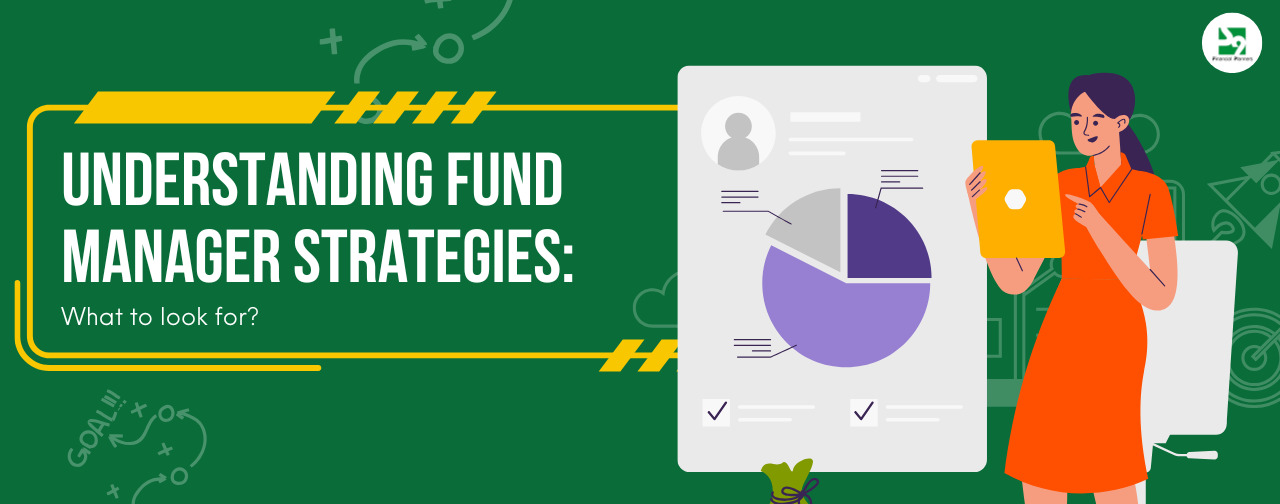Understanding Fund Manager Strategies: What to Look For?
Not many clients are initially ready to discuss fund managers when it comes to mutual fund selection. They would just want to know the past performance of the funds, completely disregarding the decision-maker behind the fund. And then I would have to explain to my clients the importance of understanding fund manager strategies. This is because I’ve always believed in educating my clients and empowering them to make informed decisions rather than dictating a financial plan for them.
It is good to have an experienced financial planner by your side but as an investor, you too should understand the key factors that influence your investments. One such important factor you should be aware of while making mutual fund decisions is the fund manager and their approach to decision-making.
Let’s explore why fund managers matter and what you need to know when evaluating their strategies.
Why Should You Be Aware About Fund Managers and Their Approach?
If I need to answer this question accurately in one sentence, I would say “because they are the decision maker behind the funds.”
When it comes to mutual funds, a fund manager is not just a ‘manager’ but rather a blend of strategist, economist, and risk mitigator. How a fund performs depends on the fund manager as much as it does on the overall market. In fact, you can say if the market is the unpredictable part of the equation, the fund manager is the predictable part. So, understanding a fund manager and their approach is an excellent way to make an informed fund choice.
A fund manager does not simply pick stocks for a fund but also understands the market, and times the entry and exit points while ensuring portfolio diversification.
Some fund managers lean toward aggressive growth stocks, while others prefer a value-driven approach. Some actively manage their funds, while others believe in passive investing. Their philosophy defines how they navigate market ups and downs—something investors must carefully assess.
Factors to Evaluate a Fund Manager’s Performance
By now it must be clear it’s not only fund performance that you need to understand. You must also know how to evaluate a fund manager’s performance. After all performance of a fund is highly dependent on the performance of a fund manager.
Fund Manager’s Track Record
As you check the past performance of a fund, you should also check the past performance of the fund manager. But, keep in mind the litmus test for a fund manager is not a fund with high returns but rather a fund that survived a market downturn.
Do you want to understand how good a fund manager is? Check how they handled the market downturn!
Let me give you a real-life example – Prashant Jain, the former HDFC Mutual Fund manager. Between 2018 and 2020, his funds underperformed largely due to high exposure to PSU stocks—an area most market experts had written off. However, Jain’s conviction in PSUs eventually paid off as these stocks surged, proving that successful fund management isn’t about short-term wins but long-term strategy and vision.
Remember, fund managers are not number crunchers; they are decision-makers who need to balance risk and reward with patience and foresight.
Fund Manager’s Decision-Making Approach
One of the most important factors that you need to pay attention to is a fund manager’s decision-making approach. A good fund manager never chases trends blindly or makes emotional decisions in the market. Instead, they rely on data-driven analysis, economic indicators, and market behavior to guide their portfolio adjustments.
They know when to enter and exit a sector, which bonds to hold, and when a stock no longer serves the fund’s long-term goals. This level of strategic thinking is what separates an average fund from a consistently performing one.
When you closely look into different funds in the same category and compare their performance in different market conditions you’ll be able to figure out whether a fund manager functions strategically or just follow the trends.
Fund Manager’s Risk Management Skills
Risk and return go hand in hand, but an experienced fund manager knows how to mitigate risks without compromising potential gains. A classic example of poor risk management was the Franklin Templeton debt fund crisis in 2020. The fund house had a high concentration of investments in Vodafone Idea and Yes Bank, leading to the abrupt winding up of six debt funds worth Rs. 27,508 crores.
For investors, this was a wake-up call. It reinforced the importance of diversification and careful risk assessment—key aspects that a skilled fund manager must master.
You can take the help of your trusted financial planner to understand the risk management skills of the fund managers whose fund you are planning to invest in. A very important saying in the industry is that you don’t need someone who can take you to the top faster but someone who holds your hands tightly when market forces start pushing you down.
Fund Manager’s Ethics and Compliance Sensitivity
Everything in the market is guided by directives and governed by rules. So, fund management is not simply about financial expertise but also about compliance and ethics.
With SEBI regulations in place, fund managers must adhere to stringent norms to protect investors. Transparency, accountability, and regulatory discipline are what differentiate a reliable fund manager from a reckless one.
Final Thoughts
Understanding a fund manager’s strategy isn’t just for finance professionals—it’s for every investor who wants to make informed decisions. Before investing, take the time to assess the manager’s investment philosophy, track record, risk management skills, and compliance adherence.
A well-chosen fund manager can mean the difference between a portfolio that weathers market storms and one that collapses under pressure. If you’re unsure about navigating this landscape, seek guidance from a financial planner who can help align your investments with your long-term financial goals.
After all, investing isn’t just about returns—it’s about strategy, security, and peace of mind.
